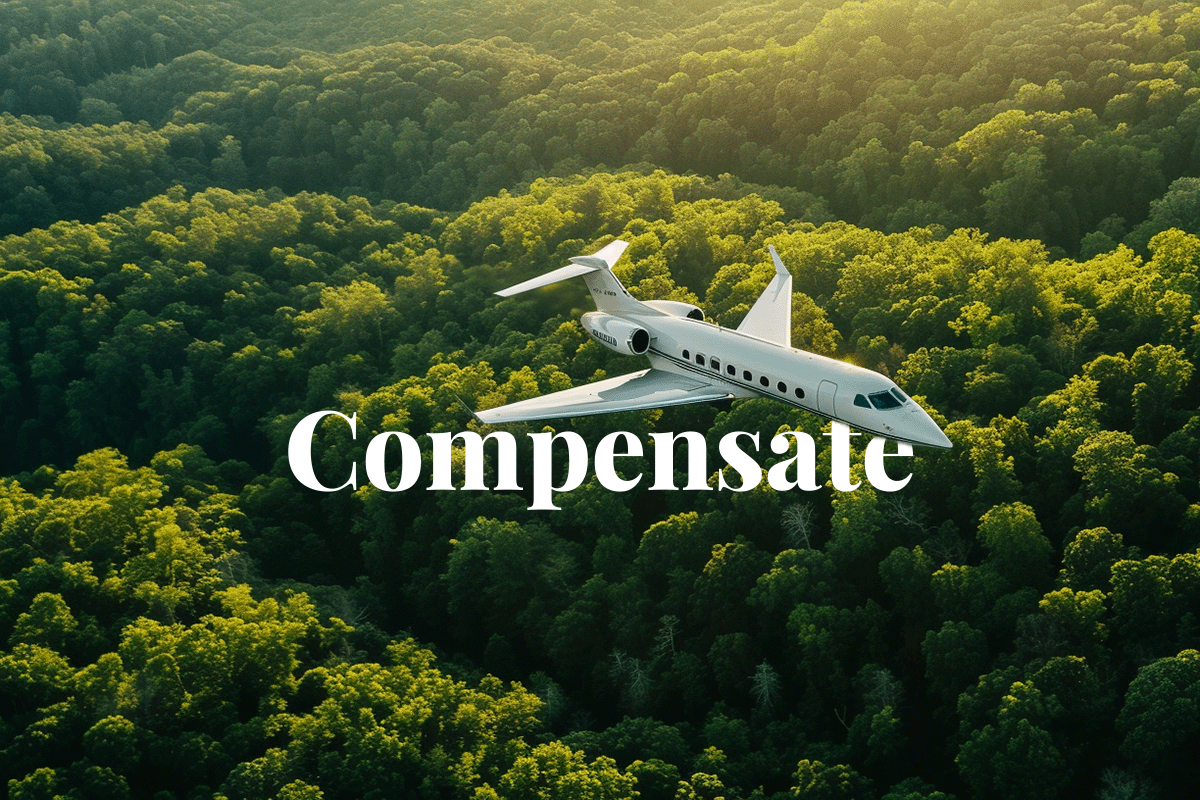Global pop icon Taylor Swift has turned to carbon offsets to mitigate the emissions from her private jet. Known for her significant carbon footprint, Swift, who was labelled the most carbon-polluting celebrity in 2022 (followed by Floyd Mayweather and Jay-Z), is now seeking to reduce her footprint through eco-friendly measures. Swift's total flight emissions for 2022 amount to 8,293 tonnes, which is over 1,100 times higher than the average person's entire annual emissions.
 Jet flying against the background of a green forest. AI generated picture.
Jet flying against the background of a green forest. AI generated picture.
Carbon offsets/carbon units allow individuals and organisations to support environmental projects to compensate for their carbon emissions. Each carbon unit represents one tonne of CO2 emissions avoided or removed from the atmosphere by carbon projects such as nature-based solutions.
Read more: How do carbon footprints work?
The spotlight on Swift highlights a broader issue within the celebrity sphere, where private jet usage significantly magnifies their carbon footprints. The aviation sector, responsible for approximately 2.5% of global emissions, sees private jets as disproportionate polluting compared to other modes of transportation. Studies illustrate the stark disparity in emissions, with private jet travellers emitting vastly more CO2 than their commercial or public transport counterparts.
_visual%202.png?width=1200&height=700&name=Taylor%20Swifts%20eco-tune%20%20addressing%20her%20high%20carbon%20footprint_%20Illustration%20showing%20annual%20emissions%20of%20CO2%20equivalent%20from%20celebrities%20private%20flights%20(tonnes)_visual%202.png) Illustration showing annual emissions of CO2 equivalent from celebrities' private flights (in tonnes).
Illustration showing annual emissions of CO2 equivalent from celebrities' private flights (in tonnes).
Research indicates that celebrities, including Swift, contribute enormously to aviation's carbon emissions, with private jet flights alone resulting in thousands of tonnes of CO2 annually. Despite not touring, Swift's jet recorded 170 flights in 2022, totalling over 22,000 minutes in the air (about 16 days), which starkly contrasts with the average person's carbon output.
Read more: Industry carbon footprints: transport, events, and celebrities
In the US, the top 1% of air travellers generate 50% of aviation carbon emissions, according to an Institute for Policy Studies (IPS) study. In the UK, wealthy individuals flying on large private jets emit 20–30 times more pollution than those in economy class on regular commercial flights, making private jet travel significantly more environmentally impactful than other modes of transit.
Celebrities and politicians thus face criticism from environmentalists for their above-average carbon footprints. A study revealed that the top carbon-emitting celebrities surveyed emit about 3,376 tonnes of CO2 each for their flights alone compared to an average person’s total CO2 footprint of 7 tonnes per year.
Read more: Taylor Swift's Eras Tour: its carbon footprint and offset strategies
For perspective, a London-to-Dubai private jet flight is 11 times more polluting than a regular commercial aircraft, 35 times more than a train, and a staggering 52 times more than a bus.
Read more: The carbon footprint of the Super Bowl
In response to growing environmental concerns, Swift has asserted her commitment to sustainability. Her team claims that her jet is also loaned out to others, and she has purchased double the required carbon units to compensate for her tour travel.
As the conversation around celebrity carbon emissions intensifies, Taylor Swift's efforts to address her environmental impact place her at the centre of a crucial debate. With the integrity of carbon offsets under scrutiny, Swift's journey from a high emitter to an advocate for sustainability underscores the complex challenges and responsibilities facing public figures in the era of environmental awareness. It highlights the need for top emitters, and for every other individual and organisation, to address their environmental impact.

DGB Group stands at the forefront, ready to deliver the critical carbon compensation solutions that we urgently require. Our expertise in crafting large-scale nature-based initiatives and supplying premium carbon units (carbon credits) to address carbon footprints is precisely what the aviation sector needs, especially to meet the stringent demands of the Carbon Offsetting and Reduction Scheme for International Aviation (CORSIA) programme for high-quality carbon offsets. DGB is committed to assisting each individual and organisation, including the aviation and celebrity industry, in addressing its carbon footprint, representing a pivotal move towards a sustainable future.


_visual%202.png?width=1200&height=700&name=Taylor%20Swifts%20eco-tune%20%20addressing%20her%20high%20carbon%20footprint_%20Illustration%20showing%20annual%20emissions%20of%20CO2%20equivalent%20from%20celebrities%20private%20flights%20(tonnes)_visual%202.png)



